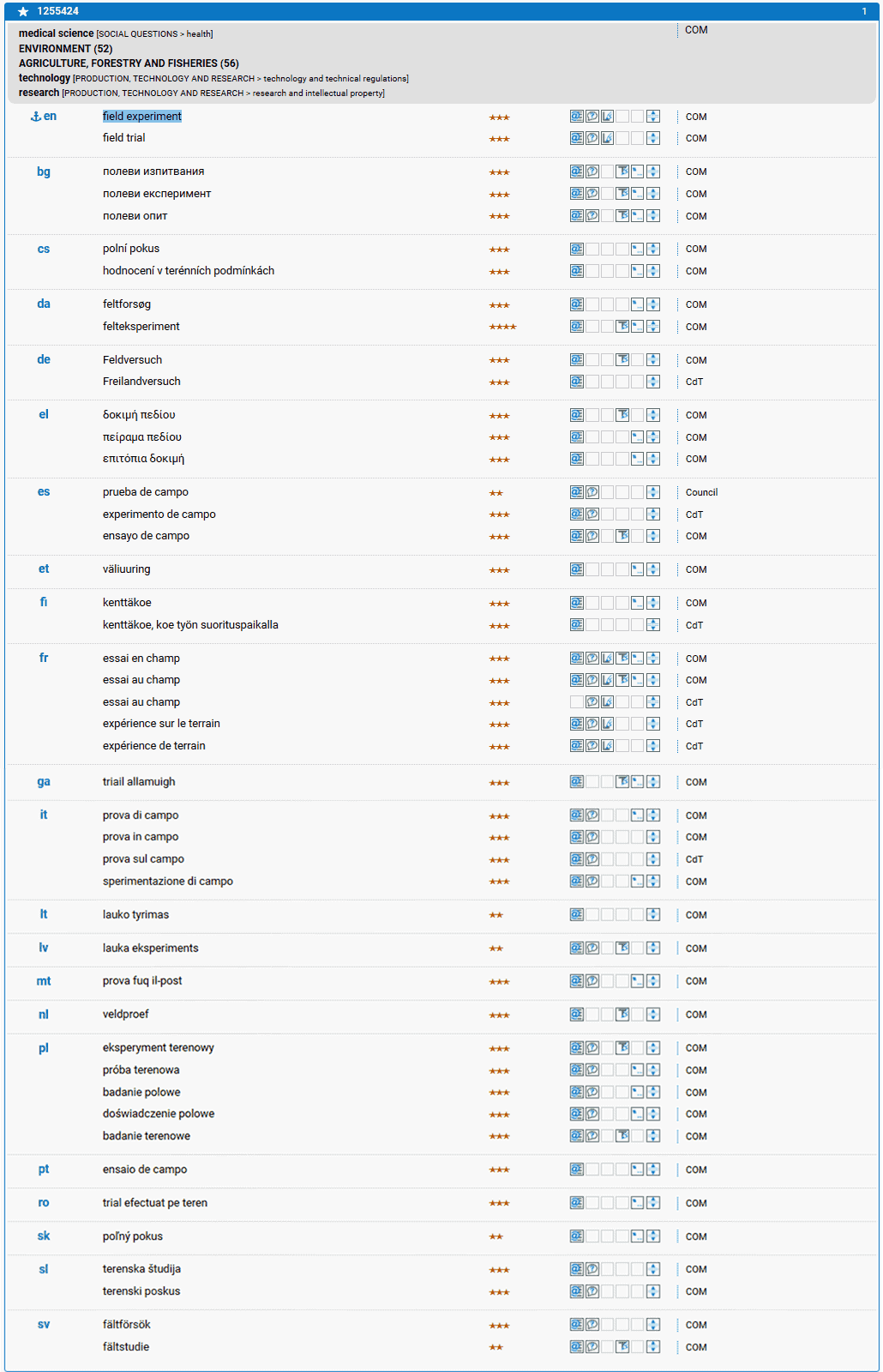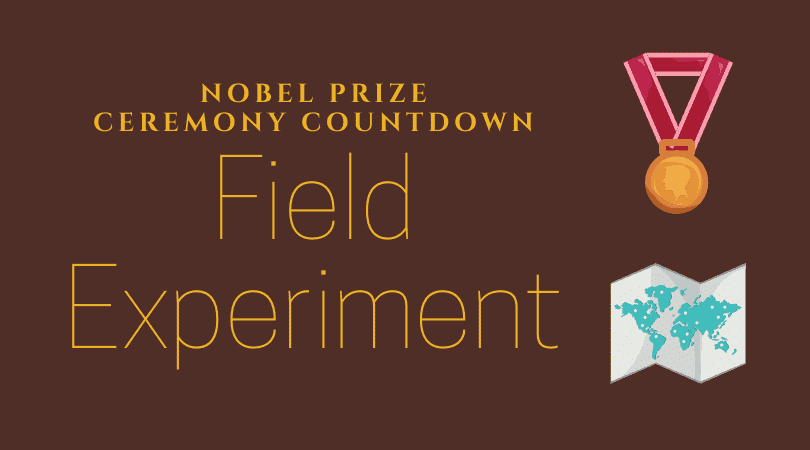 Over the next weeks, we will be counting down to the Nobel Prize Ceremony on the 10th of December with the most interesting terms of the laureates’ scientific field. Last week, we learned about Lithium-ion batteries. In this week of the countdown, we will look at scientific research methods and more specifically the term Field Experiment as the laureates Abhijit Banerjee, Esther Duflo and Michael Kremer won the Nobel Prize in Economic Sciences 2019.
Over the next weeks, we will be counting down to the Nobel Prize Ceremony on the 10th of December with the most interesting terms of the laureates’ scientific field. Last week, we learned about Lithium-ion batteries. In this week of the countdown, we will look at scientific research methods and more specifically the term Field Experiment as the laureates Abhijit Banerjee, Esther Duflo and Michael Kremer won the Nobel Prize in Economic Sciences 2019.
In research, numerous methodological strategies can help provide answers to specific problems. One of these strategies are field experiments. Field experiments are an investigation of real-life conditions on a group of individuals or control groups to test certain claims or patterns. A field experiment must be performed in real-world settings and unobtrusively. Throughout the years, field experiments have been used to tackle problems within economics, social psychology, political science and more. You may have heard about Stanley Milgram. He was a social psychologist that often used field experiments for his research.
In theory, field experiments may sound great, however, to obtain clear workable data there must be clear evidence to support the solutions. Back in the days, one of the first to utilize a controlled field experiment was James Lind in 1747. He identified in a systematic experiment a treatment for scurvy with the use of control groups. He gave each control groups a different aid such as cider, vinegar, vitriol or oranges and found out that citrus helped against scurvy. It has been a long time since Lind’s discovery and field experiments today are using more human interaction and listening instead of only observations (especially in economic research), says assistant professor in business administration Vincent Pons. He continues, “The quality of a field experiment depends as much on the time spent by the researcher on the field, discussing with people and learning from them, as on fidelity to the method”.
To get the full picture, we must also look at the limitations of field experiments. As field experiments often take place in specific region, there are concerns that you cannot generalize a global or general theory based on one specific region. This oversimplification can cause issues elsewhere. Some researchers have tried tackling this issue with larger sample sizes, comparing environments and accounting for diversity within the sample. New Nobel Prize laureate Esther Duflo expands with a comparison to her field work, “In technology, we spend so much time experimenting, fine-tuning, getting the absolute cheapest way to do something, so why aren’t we doing that with social policy? “.
Next week, we will be learning about Narrative and its relation to storytelling and literature. In the meantime, you can check out the term, Field Experiment, on IATE and learn more about field experiments in our sources.
 Sources:
Sources:
Press release: The Prize in Economic Sciences 2019. The Nobel Prize. https://www.nobelprize.org/prizes/economic-sciences/2019/press-release/ (Accessed 19th of November)
Research to help the world’s poor (Popular Information). The Nobel Prize. https://www.nobelprize.org/prizes/economic-sciences/2019/popular-information (Accessed 19th of November)
Field Experiment. Wikipedia. https://en.wikipedia.org/wiki/Field_experiment (Accessed 19th of November)
Social Experiments to Fight Poverty. TED Talk. https://www.ted.com/talks/esther_duflo_social_experiments_to_fight_poverty/transcript (Accessed 19th of November)
Field Experiments and Natural Experiments. The Oxford Handbook of Political Science. https://www.oxfordhandbooks.com/view/10.1093/oxfordhb/9780199604456.001.0001/oxfordhb-9780199604456-e-050 (Accessed 19th of November)
Fighting Poverty with Field Experiments: the Nobel Laureates’ Revolution. ProMarket. https://promarket.org/fighting-poverty-with-field-experiments-the-nobel-laureates-revolution/ (Accessed 19th of November)
Michael Kremer / The Origin and Evolution of Randomized Evaluations in Development. YouTube – J-PAL. https://www.youtube.com/watch?v=YGL6hPgpmDE (Accessed 19th of November)

Written by Mads Rise
Communication Trainee at the Terminology Coordination Unit of the European Parliament in Luxembourg. Holds a BA in English and IT-based Marketing and Communication from the University of Southern Denmark. Mads finished his BA with a thesis on Search Engine Optimisation and E-commerce. He has hands-on experience in web communication, SEO, administration and logistics.

